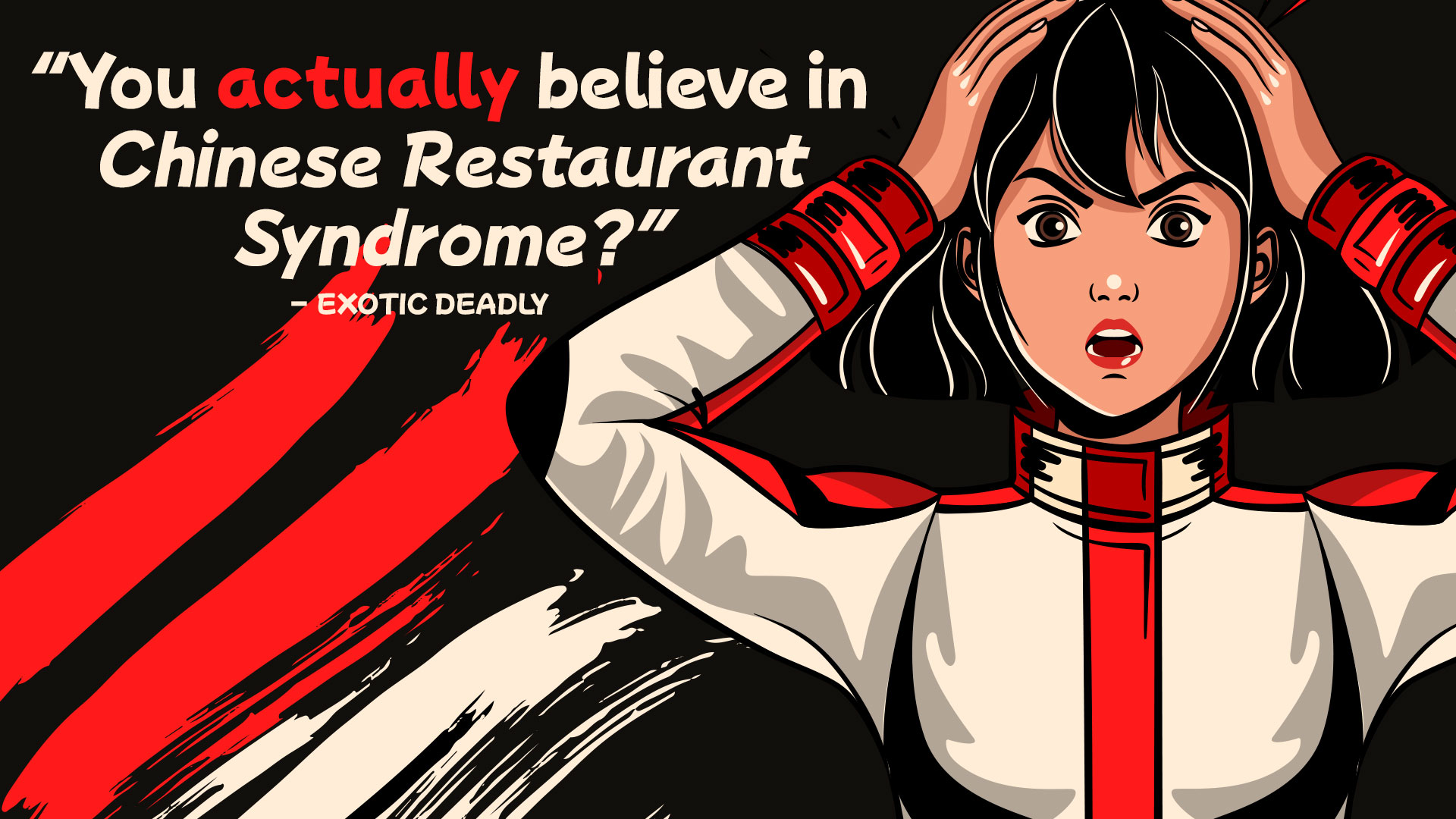Is monosodium glutamate, the oft-vilified umami-boosting seasoning better known as MSG, dangerous to your health?
Exotic Deadly: Or The MSG Play by Keiko Green takes on this hot-button issue and presents us with a resounding answer: Nope.
In 2020, Merriam-Webster finally updated its entry on ‘Chinese restaurant syndrome’ from an antiquated, unfounded, and offensive critique of Chinese food, as a result of backlash from the public.
The FDA says that MSG is generally recognized as a safe food additive. Famous chefs and authors have reviewed MSG — and the controversy surrounding it, too. Here’s what they have to say.
“I like MSG. I don’t react to it – nobody does. It’s a lie, man. You know what causes Chinese restaurant syndrome? Racism. ‘Ooh I have a headache; it must have been the Chinese guy.’”

“I hear MSG is some sort of evil demon for food. I don’t get that. We have a fermentation lab, and we breathe it in every day. We have 3,000 pounds of homemade MSG in storage.”

“Whenever I make fresh popcorn, I season with salt, black pepper, and a sprinkle of MSG … If anyone gives you shit about MSG, just give them a bag of Doritos.”

“Chances are, you’ve eaten some MSG within the last 24 hours. Glutamate is found in all kinds of foods, like Parmesan cheese, green peas, and tomatoes.”

“First of all, MSG is delicious. Second of all, calling it Chinese Restaurant Syndrome is really ignorant. MSG is in ranch dressing!”

“Monosodium glutamate (MSG) is everywhere … it’s ridiculous that Chinese restaurants have to post signs saying “NO MSG” to appeal to customers who consume it in so many other forms. The automatic association of Chinese food with “the mysterious ‘white powder’ of the Orient,” as The Joy of Cooking introduced MSG in 1953, has everything to do with race and stereotypes.”




